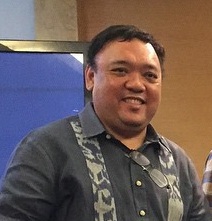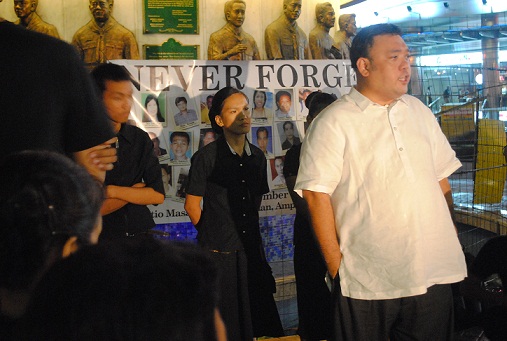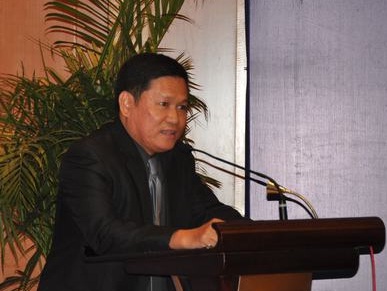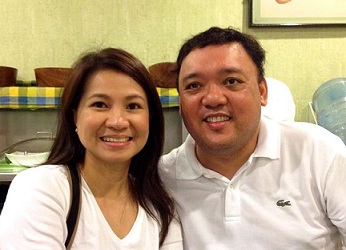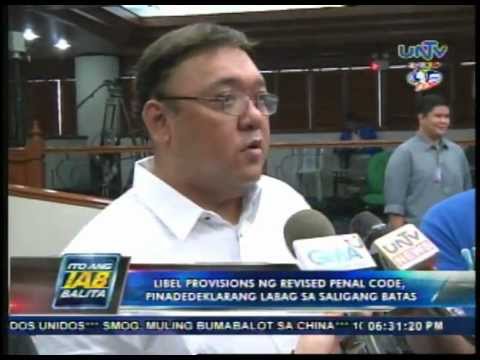Statement of the Prof. Harry L. Roque Jr., chair of the Center for International Law (Centerlaw), an NGO dedicated to the promotion of binding international legal norms in the Philippines and Asia:
“We take exception to the veiled threat in the statement made yesterday by Secretary Leila De Lima that the Vera Files special report on a recent Note Verbale given by the Philippines to Malaysia over the Spratlys islands concerned a confidential matter that should have been kept as it is.“In the first place, our Justice Secretary should be first to know that such a threat is in the nature of prior restraint with a chilling effect on speech, as held by the Supreme Court in the case filed by the late former Solicitor General Francisco Chavez against a predecessor of hers at the DOJ, the late Raul Gonzales.
“A mere press statement of a threat of prosecution coming from a government functionary, according to this 2008 Supreme Court decision, is unconstitutional precisely for that reason.
“As a former head of the Commission on Human Rights, we expect her to understand that Vera Files is simply doing what journalists ought to do well: report on matters of public interest, especially one where the integrity of the national territory of the Philippines is at stake, so that the citizens are properly apprised of the issues involved.
“The documents unearthed by Verafiles in its journalistic sleuthing are clear enough and also belie Secretary De Lima’s claim of disinformation.
“Note Verbale No. 15-1979 sent to Malaysia, the basis of VERA Files’ story, stated that it is offering a review of the Aug. 4, 2009 protest (No. 000819) it filed with the United Nations. The Philippines’ August 2009 protest, contained in two pages, singles out North Borneo or the old name of Sabah.
“In this Protest, the Philippines took issue with an earlier joint submission by Vietnam and Malaysia for the extended continental shelf because it “lays claims on areas that are disputed not only because they overlap with that of the Philippines, but also because of the controversy arising from the territorial claims on some of the islands in the area including North Borneo.
“The 2009 Protest clearly disputed Malaysia’s use of North Borneo (the old name of Sabah subject of the Philippine territorial claim), as reference points for its baselines in determining the reach of its claim to an extended continental shelf.
“Had the Philippines kept silent on this joint submission, it would have meant that the Philippines has implicitly consented to the use of Sabah as a reference point for Malaysia’s extended continental shelf claim, which is another way of saying that we are recognizing Malaysia’s ownership over Sabah.
The Note Verbale offers a Philippine review of its 2009 Protest if Malaysia agrees to two requests related to the South China Sea conflicting territorial claims.
The first request is for Malaysia to “confirm” that its claim of an extended continental shelf is “entirely from the mainland coast of Malaysia, and not from any of the maritime features in the Spratly islands.”
The DFA also requested Malaysia to confirm that it “does not claim entitlement to maritime areas beyond 12 nautical miles from any of the maritime features in the Spratly islands it claims.”
The offer by the Philippines of a review of its 2009 Protest is diplomatese for a quid pro quo arrangement. It appears to intimate that if Malaysia agreed to the proposal, the Philippines will withdraw or at least revise its Protest to the joint submission. In either case, it will clearly amount to a dilution, as Vera Files would put it, of our claim to Sabah.
This is without doubt a matter of the public interest. As the Vera Files story underlines, a matter as important as a big part of the Philippine national territory enshrined in the 1987 Constitution should not be bargained away by a mere Note Verbale without so much as a public discussion on its implications.”
